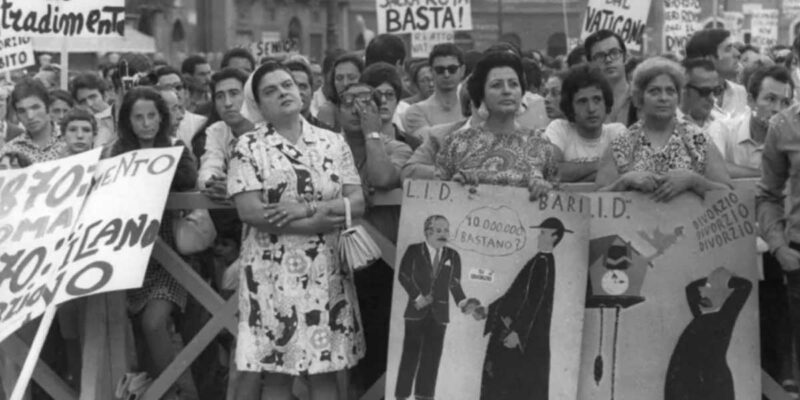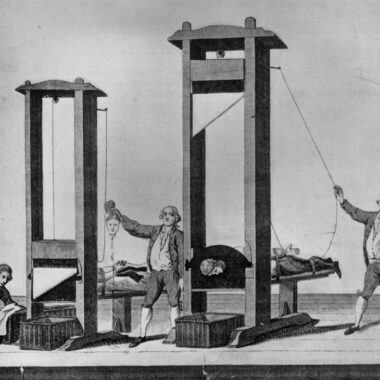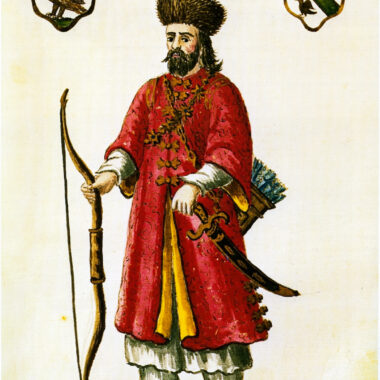In the lines of Italian history, stories of women who have written pages of change with the strength of their ideas and the commitment of their actions are hidden. Far from the spotlight and the mass media headlines, they have been the protagonists of a silent yet powerful transformation. Keep reading to discover the strong impact, for better or for worse, of some Italian women on our country’s politics and the most known laws desired by Italian women.
Merlin Law (1958)
Socialist Lina Merlin caught attention by following in the footsteps of the former French prostitute and politician Marthe Richard. In France, the so-called brothels, or houses of tolerance, closed in 1946, immediately after World War II. The politician not only emphasized gender equality and condemned the objectification of the female body but also directly attacked the regular patrons of brothels. To support her proposal, she declared: “Clients are often corrupt men, married and not just bachelors. They are also students, workers, soldiers who are led for the first time to the brothel out of curiosity. They certainly would not remain chaste without regulation, but neither would they succumb to the first stirrings of passion, when their bones are not yet well-formed.”

The project became law on February 20, 1958: state regulation of prostitution was abolished, and sanctions were introduced against the exploitation and facilitation of prostitution. This date marked a huge turning point, as brothels were frequented by people of all social classes, and the significant change was not welcomed by all political parties. Among the opponents, many argued that the choice would promote the spread of street prostitution, which indeed occurred, along with an increase in venereal diseases.
To this day, prostitution in Italy is not considered illegal between consenting adults. However, any other related activities, such as pimping, exploitation, or operating brothels, remain illegal.
Divorce Law (1970)
Coming into effect on December 1, 1970, Law 898 definitively legitimized the consensual dissolution of marital ties. With the same law, maintenance allowances for women and children were also established.
Protection for Working Mothers (1971)
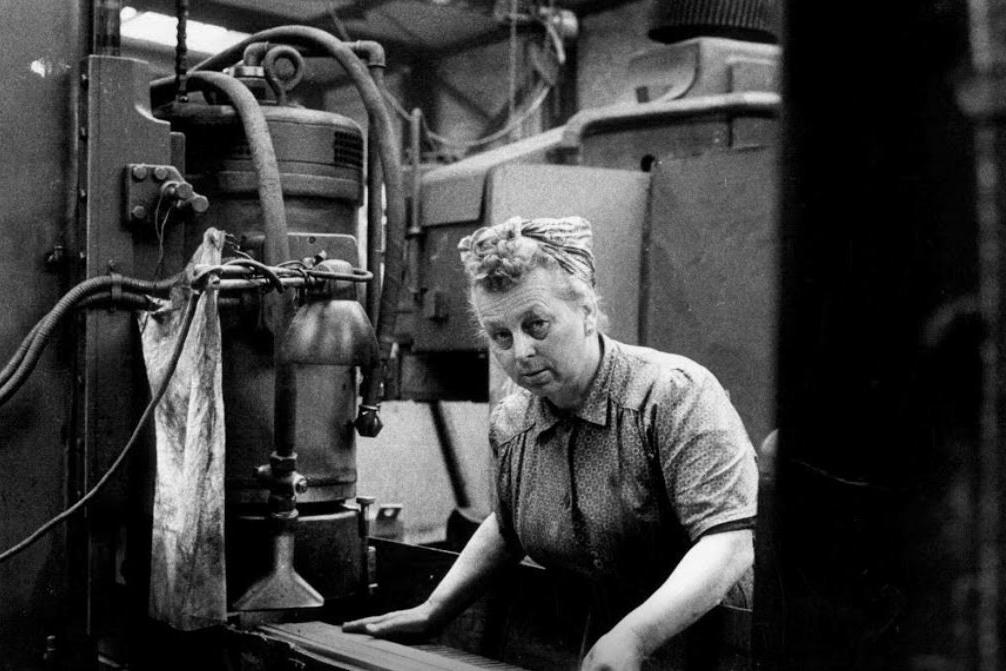
Probably one of the most significant steps forward of the 20th century in terms of female-focused legislation. Law 1204 of December 20, 1971, prevents employers from dismissing pregnant workers, in addition to guaranteeing paid absence at 80% two months before and three months after childbirth. A key piece in the larger, much-debated chapter of female employment and labor rights. It also provides for an optional leave of 6 months, paid at 30%, within the first year of the child’s age.
Family Law (1975)
On May 19, 1975, family law in Italy was reformed. This law brought absolute equality between spouses within marriage, both in terms of rights and duties. It also established protection for children born outside of marriage.
The family law revolutionized the previous 1942 law, which outlined a hierarchical family structure with the pater familias at its head.
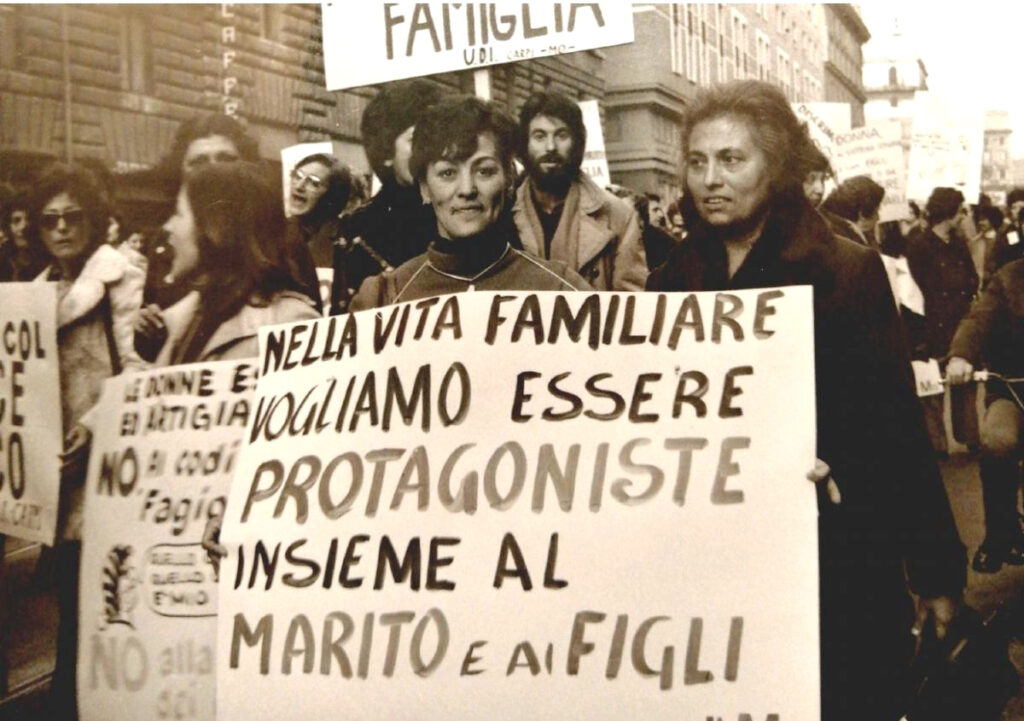
Protester with a sign “in family life we want to be protagonists together with her husband and children”
Abortion Law (1978)
The Abortion Law of 1978, which came into effect on May 22 of that year, established the protocol and legitimacy of abortion, along with access procedures for pregnant individuals. Before this date, abortion was considered a crime and was therefore practiced clandestinely. The issue remains highly debated in Italy, and attempts to repeal it have never succeeded. The debate between ethics and the desire to autonomously decide one’s life seems more heated than ever in recent years, as do conflicts between different ideologies, especially among people of different generations.

Abolition of Honor Killings (1981)
The abolition of honor killings drew attention to the immorality of honor killings and reparative marriages. Until this law, it was possible in Italy to kill a woman who had been unfaithful, as well as to rape a woman, abduct her, and then marry her in accordance with the law. The so-called honor killing is a concept somewhat distant from current culture but was seen as a way to defend the honor of one’s family following an offense, such as a woman’s infidelity.
Sexual Violence (1996)
In 1996, rape in Italy became a crime against the person who suffers it, rather than solely against public morals.
“Codice Rosso” Against Violence on Women (2019)

The law was approved on July 17, 2019, by the senate without any opposing votes and provides a fast track for reports and cases of violence reported by women. It mandates that the public prosecutor must hear reports within a maximum of 3 days from the crime being reported. The Codice Rosso (Red Code) was further reinforced under the Meloni government on November 22, 2023.
